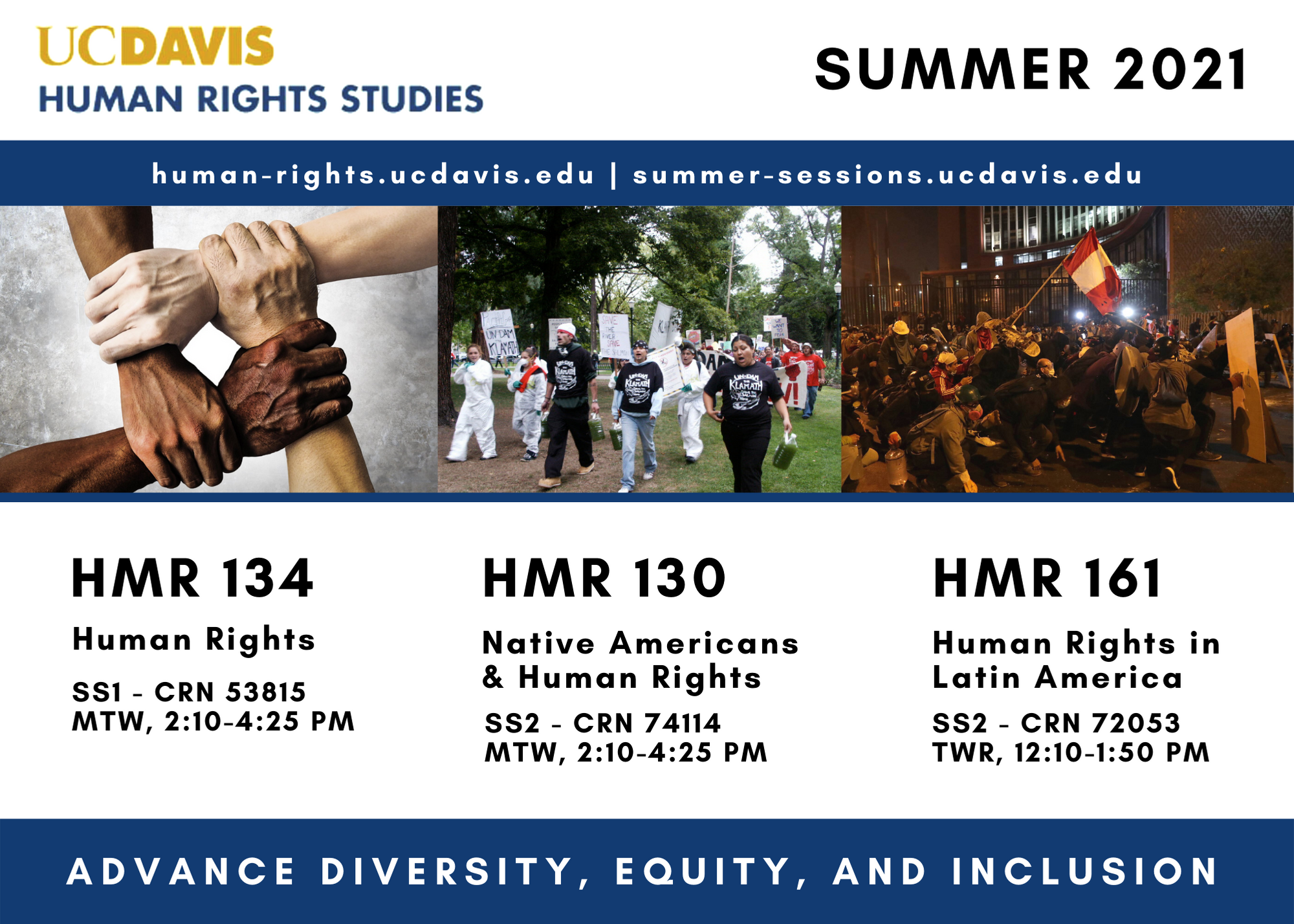Human Rights Courses - Summer 2021
- For day, time, room, and TA information, see our PDF SCHEDULE or the course search tool https://registrar-apps.ucdavis.edu/courses/search/index.cfm.
- For all courses not listed below, please refer to the General Catalog course descriptions: https://catalog.ucdavis.edu/courses-subject-code/hmr/
Undergraduate Courses

HMR 130 - Native American and Human Rights
Britanni Orona
HMR 134 - Human Rights
Lauren Eastland
Who cares about freedom of religion or the right to an education? How do human rights laws and U.S. laws treat those issues, and are they always in agreement? How does climate change relate to human rights and religion? In HMR 134 will explore the origin and evolution of the human rights idea with special attention to the U.S. role., historically and today. In what ways are U.S. laws and practices historically at odds with certain human rights? How does this affect children and indigenous peoples in the U.S.? Join me for a lively exploration of the human rights idea and its place in the world and in U.S. society.
HMR 161 - Human Rights in Latin America
Maria Claudia
How do societies that have gone through long-term political violence, civil war, and military dictatorship deal with human rights abuses in their aftermath? Through what mechanisms do they struggle to restore peace and democracy, pursue truth and justice, and advocate for memory and reconciliation? This course will explore the historical contexts leading up to military dictatorships and violent guerrillas, the emergence of organized resistance by civil society, the efforts to enact political reform and defend human rights, and the ongoing problems posed by justice and memory. The regional focus will be on Chile, Argentina, and Peru. We will approach these cases using diverse source materials to examine how decades of dictatorships, civil wars, and political violence are being remembered and dealt with since the return to democracy. The course will interest students of human rights, history, politics, and literature because of its interdisciplinary approach. No prior knowledge is necessary.
